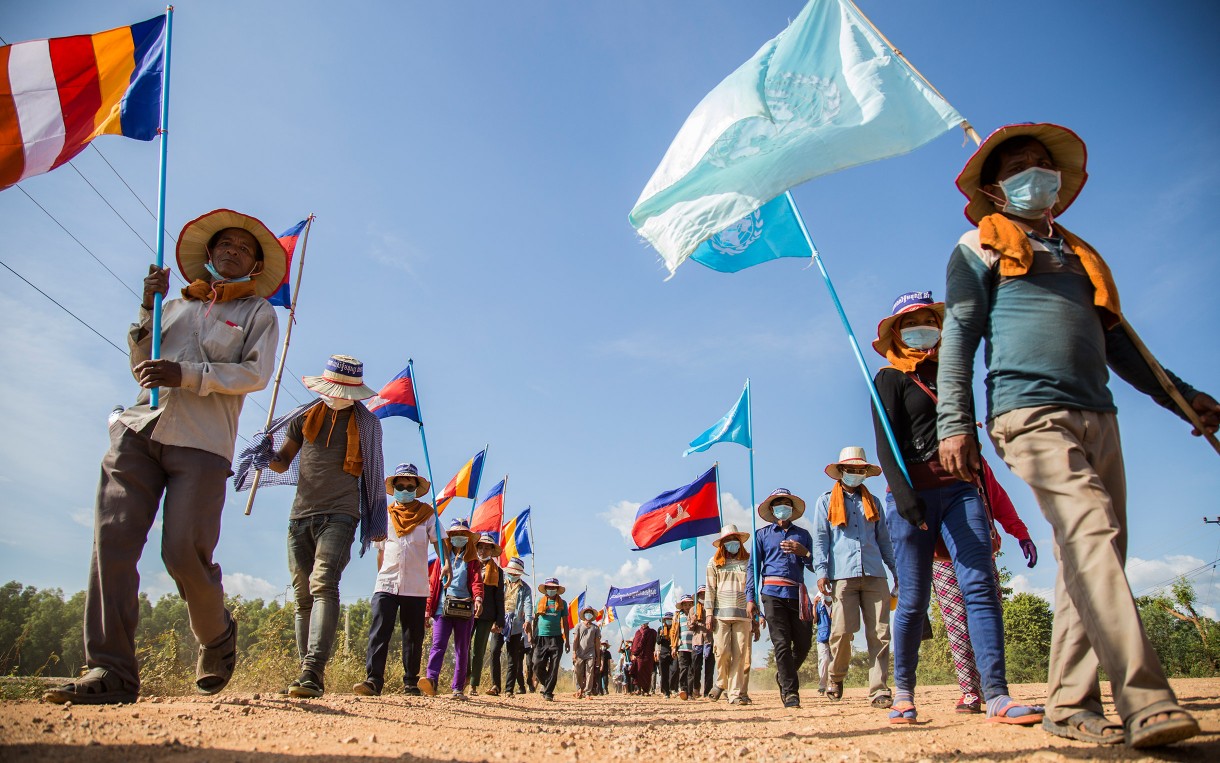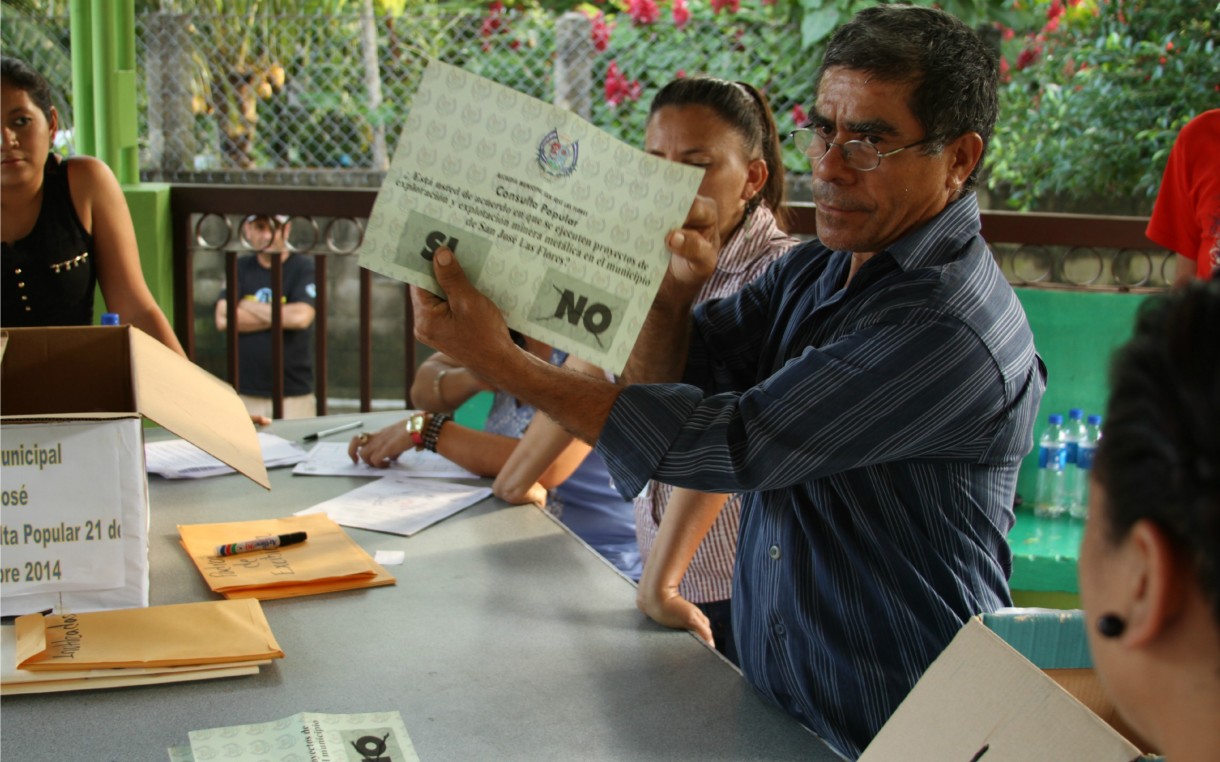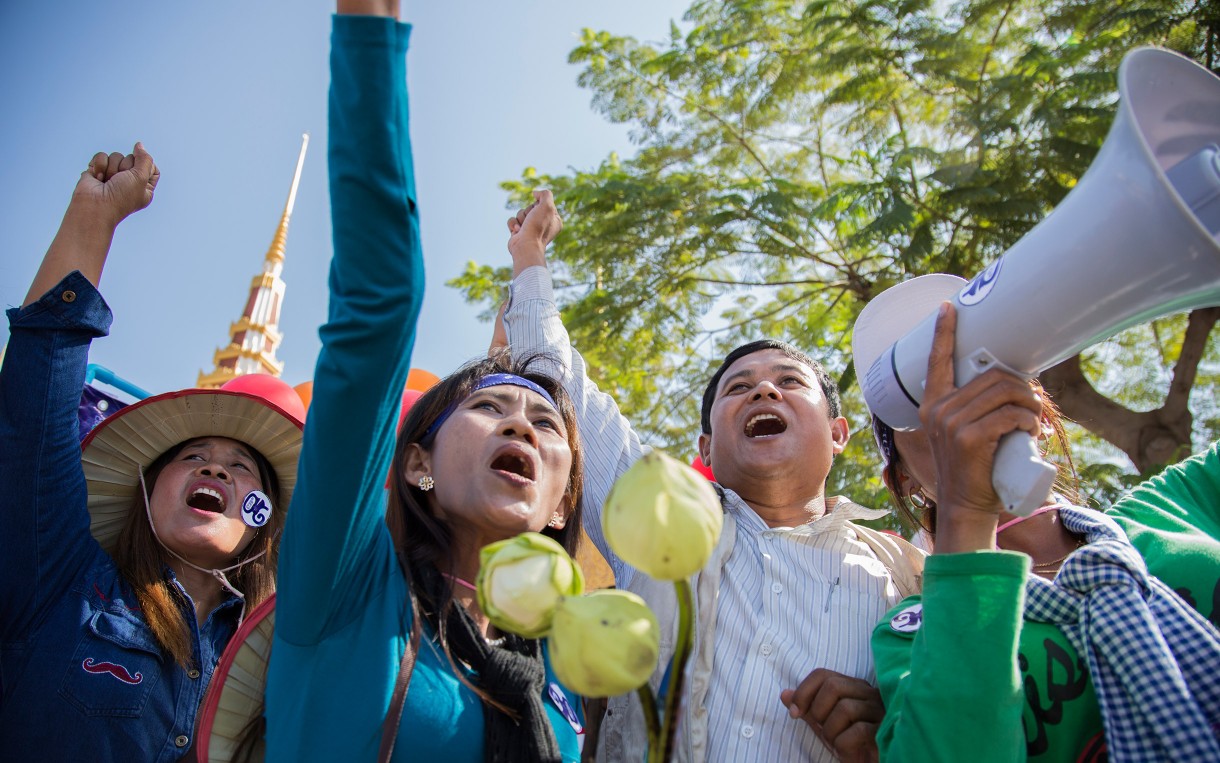What’s really going to end poverty? It’s a question of power
 Indigenous people march on Human Rights Day in Cambodia. Photo: Savann Oeurm/Oxfam America
Indigenous people march on Human Rights Day in Cambodia. Photo: Savann Oeurm/Oxfam America
Delivering aid helps. But we need to change the conditions that create poverty in the first place.
At a small village in northern El Salvador, on a quiet, warm, beautiful Sunday, I witnessed a peaceful struggle for power.
I was there as an international election observer, having been trained the previous day in the exact procedure the officials were to follow. I was told to look for “irregularities.” The voting officials followed the rules scrupulously, checking everyone’s ID against the roll of 170 registered voters, even though it was obvious everyone knows everyone in this little district. One elderly gentleman hobbled over to vote, and realized he had forgotten his ID, one of the poll workers immediately got on a cell phone and called someone to get it for him. They sat this voter down, gave him a cup of coffee, and he voted when his granddaughter arrived with his document.
I was in Las Limas, a hamlet outside the main town of San José Las Flores, surrounded by high hills and mountains and trees. The vote was about whether people in San José Las Flores wanted to allow industrial mining. The local farmers were concerned that mining will pollute their water supply, and displace them from their farms. They could see what had been happening in nearby Cabañas, where a foreign mining company was suing the government to get a permit to mine.
Here at Oxfam we have a theory: We can’t defeat poverty unless we address the way power works. Ultimately, those in power need to use the government to serve the citizens, and society needs a clear pathway to holding those in power accountable. The protests in Hong Kong are an example of what people can resort to when the path to the voting booth is blocked. But other movements like Occupy Wall Street, the Arab Spring, and the protests we are now seeing in the US are all about injustices and unaccountable power.
Helping people push their elected leaders to protect their environment and livelihood is just as important as food aid, building schools, and supplying clean water. We absolutely need to do those types of service delivery projects, particularly in emergencies, but we also need to support projects that encourage those in power to end the injustices that cause poverty. Otherwise the schools we build will fall apart, and have no books or teachers in them, and the water systems will not be maintained. We are just enabling injustice, and letting those responsible off the hook as we fund the work they should be doing. This will never make poverty end.

Oxfam is supporting a coalition in El Salvador working on a national ban on metallic mining, and it helped San José organize their referendum. Almost everyone in San José voted NO, to say they are not in favor of allowing mining there. San José’s Mayor Felipe Tobar told me he and his town council now have a mandate to write an ordinance to ban mining.
That’s why I say it was a beautiful Sunday in San José, because people were making their voices heard to those in power, and it was peaceful. There was no violence or conflict. I saw a stray dog disrespectfully lift its leg and piss on the corner of the cardboard voting booth. That’s it.
The people of San José know their rights to be consulted about whether they want mining in their town, but they were lucky that their mayor and town council were on their side. The following week I visited a community in Guatemala where the exact opposite situation led to protests, shootings, a military occupation, and the persecution of the leaders of a peaceful campaign to claim the same rights I saw exercised in San José.

On December 10, International Human Rights Day, my colleague Savann Oeurm in Cambodia shot some photos (including the one above) at a march of indigenous people walking hundreds of miles to the capital, Phnom Penh. They were calling for the government to respect their right to protect their indigenous territories, which are in danger of being expropriated for rubber plantations and gold mines. Cambodia is a country where indigenous land rights are barely known, and the government has been trying to pass laws that could potentially clamp down on organizations advocating for accountability. No one is holding any referenda on mining in Cambodia.
Look at the faces of these people, they communicate an important truth: They know they deserve better, and they are not afraid to ask for it. You need that small bit of knowledge about your own power to change something, before you can change anything.
The support of people like you gives those living in poverty the resources they need to make profound change in their communities. Be part of lasting change: make a tax-deductible year-end gift today.